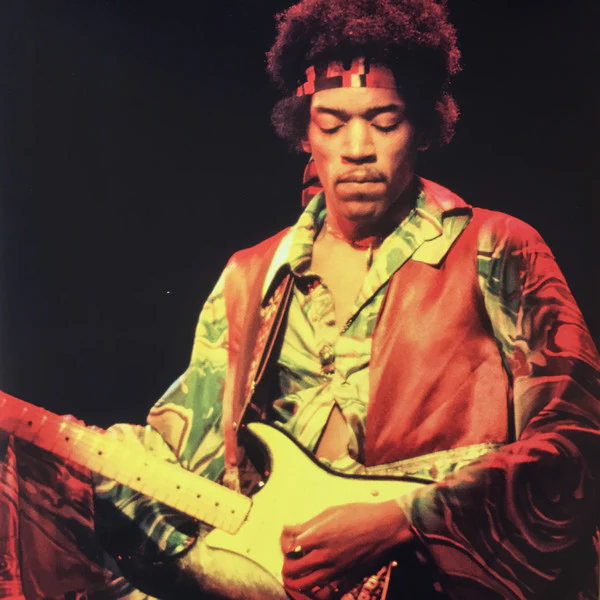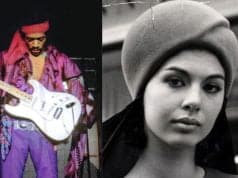The haze of the late 1960s was thick with more than just flower power and the sounds of psychedelic rock. It was a time of social transformation and awakening, and no other figure symbolized this delicate interplay between chaos and creation more than Jimi Hendrix. As his fingers danced across the strings of his guitar, churning out electric riffs that challenged the very essence of music, the distant echoes of warfare rang in his ears, creating a dissonant chorus that would shape his artistry in unprecedented ways.
Jimi Hendrix, the God of electric melodies, was not untouched by the torrential undercurrents of his time. Behind the magnetic energy of his performances, the looming presence of the Vietnam War was an undeniable influence. The war’s distant reverberations found their way into the very soul of his music, the riffs and rhythms.
Though Hendrix never served in Vietnam—having been discharged from the military before the escalation of the conflict—many of his close friends and peers were either drafted or volunteered. Their letters, filled with pain, disillusionment, and the occasional glimmer of hope, provided Hendrix with a window into the harrowing landscapes of war. Every chord he struck, every song he penned, bore the weight of a generation torn between the ethereal dreams of Woodstock and the nightmarish realities of Vietnam.

“Machine Gun,” a track from his Band of Gypsys album, stands out as a testament to this juxtaposition. The song, an aural masterpiece, melds the chaotic sounds of warfare with the anguished cries of a guitar. The notes Hendrix played weren’t just notes; they were bullets, tears, and silent prayers. As Hendrix once remarked about the track, “It’s really just a plea to end the war.“
The music scene of the late 60s was intrinsically intertwined with the politics of the era. Protest songs were more than a genre; they were a movement. While many artists like Bob Dylan and Joan Baez were direct in their critiques, Jimi Hendrix’s approach was more esoteric. Hendrix’s music painted a tapestry of emotions, from the angst and anger of a generation witnessing the horrors of war from their television screens to the heartbreak of losing friends to an enemy thousands of miles away.
Yet, it wasn’t all darkness. In Hendrix’s melodies, there also existed a hope—a belief in the power of music to heal, inspire, and unite. Tracks like “Star Spangled Banner” were less a rendition of the national anthem and more a cry for unity, peace, and understanding. The distorted sounds, while initially jarring, ultimately culminate in a harmonious plea, a wish for a brighter tomorrow amidst the shadows of yesterday.
How Did Jimi Hendrix’s Military Experience Influence His Music?

Jimi Hendrix’s military service offered him a unique lens into the intricacies of war and solidarity among comrades. Although Jimi Hendrix never experienced combat in Vietnam, the ethos and rigors of military life, along with poignant letters from friends at the frontlines deeply etched into his musical expressions.
Why Did Jimi Hendrix Join the Army?
Jimi Hendrix faced a choice following a joyriding incident: two years in prison or joining the armed forces. Opting for the military, Hendrix hoped that army life might provide a fresh start. However, his true passion remained with music, making his military stint a short-lived endeavor. Interestingly, Hendrix’s father, “Al” Hendrix, had experienced the harsh realities of the Second World War. This familial connection to wartime added a layer of complexity to Jimi’s military experience, as he navigated a path that was influenced not only by personal circumstances but also by the echoes of his father’s own wartime journey.
Did Jimi Hendrix Work for the US Army?
Yes, Jimi Hendrix served in the US Army as a paratrooper in the 101st Airborne Division. Enlisting in 1961, he completed basic training and was assigned to the “Screaming Eagles” unit at Fort Campbell, Kentucky. This military experience, though relatively short-lived from May 1961 to June 1962, significantly influenced his character and later musical career.
Did Jimi Hendrix Go to War?
Jimi Hendrix did not participate in the Vietnam War as a combatant. While he served in the US Army, his tenure ended before the escalation of the Vietnam conflict. Thus, he was spared from the horrors of combat many of his peers experienced. While he served as a paratrooper, participating in training exercises and readiness drills, he was spared from the combat experiences.
Why Was Jimi Hendrix Discharged From the Army?
Jimi Hendrix received an honorable discharge due to “unsuitability.” His superiors frequently reported his indifference to military regulations, including sleeping on duty and neglecting assignments. His evident passion for guitar and disinterest in a military career likely expedited the decision to discharge him.
Did Jimi Hendrix Oppose the Vietnam War?
Jimi Hendrix’s stance on the Vietnam War was nuanced. While he didn’t make overt political statements, songs like “Machine Gun” clearly expressed anti-war sentiments. Through his music and performances, he often mirrored the broader anti-war and countercultural feelings that were pervasive during the late 1960s.
Were There Other Musicians Besides Jimi Hendrix Who Served in the U.S. Army?
Indeed, several iconic musicians also wear the military uniform. Elvis Presley, often hailed as the “King of Rock and Roll,” served in the U.S. Army from 1958 to 1960, achieving the rank of sergeant. Johnny Cash, renowned for his contributions to country music, had a stint in the U.S. Air Force before launching his illustrious music career. John Fogerty, the lead singer of Creedence Clearwater Revival, served in the U.S. Army Reserves during the Vietnam War. Kris Kristofferson, a celebrated singer-songwriter, flew helicopters as a U.S. Army pilot before making his mark in the music industry.
These artists, much like Jimi Hendrix, navigated the dual worlds of military service and musical fame. Their experiences in the armed forces added unique dimensions to their life stories, shaping both their character and their later contributions to the world of music.








